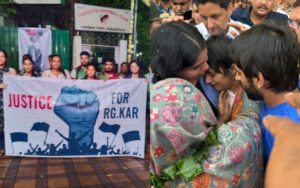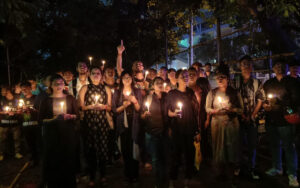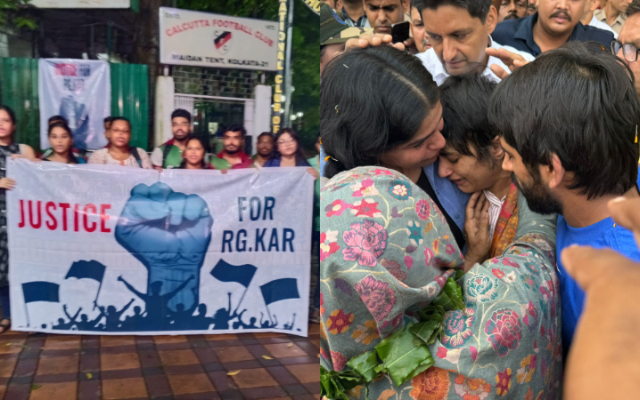
A couple of days ago, I had written a piece on this platform, speaking about sport as a tool for protest. I had cited women who had combatted the difficulty of their various circumstances to play sport as a form of protest, whether playing in shorts against social norms, or giving a miss to an arranged marriage pressed upon them by families, to follow their calling. I had written this in a state of distress following the horrific incident of rape and murder of a woman intern at Kolkata’s RG Kar Hospital. Women taking up sport, especially in India, has been and continues to be a matter of overturning stereotypes. And that’s what counts.
Not that they will be strong by virtue of the sport they play to resist male advances – that’s a perspective which shouldn’t prevail anyway.
It’s mutual education through sport that should be the paradigm, how sport allows the breakdown of stereotypes in society. Playing sports together also teaches girls and boys to respect each other’s bodies, I would argue, and to see each other more as individuals beyond their sexuality and gender – something that seems sorely needed in our society today.
In Odisha, under the Olympic value education programme, we have seen teenage girls and boys playing together, in a society where otherwise they would be more segregated. It has made them better friends, it has made boys choose girls as group leaders over other boys. That’s progress in real terms and it is progress through sport – in your eye.
For the Latest Sports News: Click Here

Yesterday, the much awaited Kolkata Derby was cancelled on account of the tense situation in the city following the heinous crime at RG Kar. Some have complained that it is on account of the administration’s fear of protests and chaos centering the congregation at the Derby. Whatever the case, sport stands here embroiled with politics. As a form of protest and empathy, the cancellation stands true because we cannot have played, when the city is mourning a breakdown of civic order and the brutality committed. Late yesterday evening Mohun Bagan supporters participated in the protest march in front of their club, and today a joint protest by East Bengal and Mohun Bagan is expected. That again is an indication that sport burns as a beacon of protest across parties and affiliations, and as a challenge to injustice.
Yesterday, also, landed in Delhi Vinesh Phogat, welcomed by huge crowds who were not there to celebrate a medal. They were there to celebrate this lady as a symbol of what she stands for – grit, determination and protest against gender injustice.

Curiously, it all comes together – the cancellation of the Derby, the Derby as a potential and possible venue for further protest against atrocity and Vinesh returning to India. Sport is political here for the right reasons. Sport is political because it has allowed a contest to patriarchy through a figure like Vinesh. It has led to a further welling up of protest through social media responses to the cancellation of the Derby, and the protests organised by the individual clubs.
Most importantly, it signifies that politics here is not anything to do with a party, any party, as sometimes imputed. Sport, whether in our athletes or our public, has made for an advancement of the spirit of our democracy that promises equal opportunity and justice to all.
Also Read: August protest: Empowerment of women through sports




